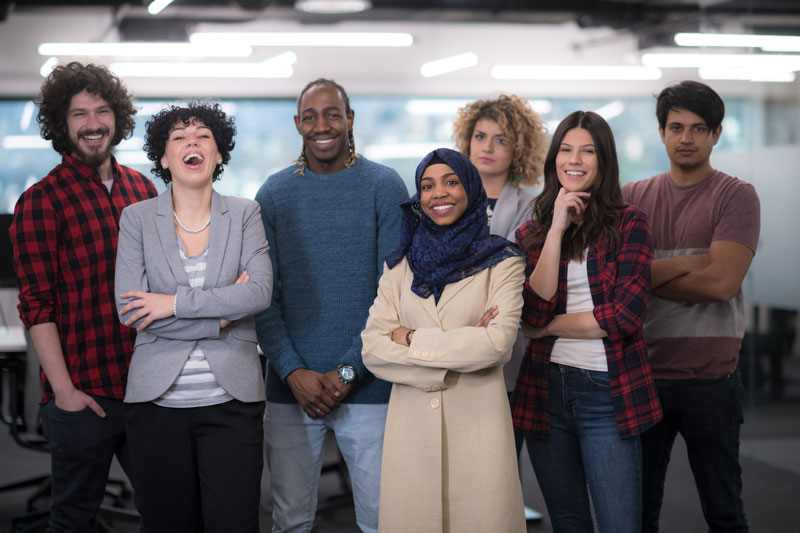Our Services
Diversity, Equity & Inclusion Training, workshops and webinars
We are a leader in conducting DEI training sessions. In-person and online. In Polish and English. For small and large groups. In short and long formats. Always with a deep understanding of business and a focus on business outcomes. See how we can help you develop skills or raise awareness in your team.
Explore our training categories
Inclusive recruitment is about ensuring that the vision of inclusion and equity translates into concrete actions throughout the entire recruitment process and in every interaction with candidates.
Caring for the image, preventive actions, increased innovation, or simply building a sense of belonging? Whatever needs are behind your actions, we can support you.
Organizations aiming for effective functioning invest in training for skills in collaborating with people from diverse cultural backgrounds, which enables the development of more open and effective business relationships on a global scale.
Training in managing generational differences is a crucial step for companies aiming to gain a competitive edge by creating a work environment that not only tolerates age differences but also leverages them as a key to success.
Companies that wish to create a workplace free from discrimination and full of acceptance for all employees often seek workshops on LGBTQ+ allyship.
The word “gender” in Poland has recently been changed by all cases. There is a business case for it – the data we have proves that companies that invest in gender equality achieve better results.
Inclusive leadership is the key to success in implementing DEI in any organization. Without engaged, aware, and competent leaders, any initiatives will remain mere ‘actions’ and ‘good ideas.’
Neurodiversity is a concept that describes all of us, as each of us has a different brain and a unique personality. We also differ in our needs and preferences, which affect how we function within society.
In order for the company to evolve toward a more sustainable and socially just business model, managers and managers, employees and employees must acquire the knowledge and skills needed to effectively support people with various types of disabilities.
Individual differences refer to the variation in traits, characteristics, and preferences among people. These include differences in areas such as personality, skills, learning styles, and communication preferences.
Regardless of the number of programs, tools, and platforms supporting wellbeing, the key to success is understanding the mechanisms of human behavior and discipline in making decisions for one’s own health.
Building an inclusive organizational culture brings a number of benefits. It fosters increased employee engagement, improved creativity and innovation, and increased diversity of perspectives within the organization.
Discrimination and bullying are not only morally reprehensible but also violate individual rights. They can lead to serious consequences for both the victim and the organization where they occur.












